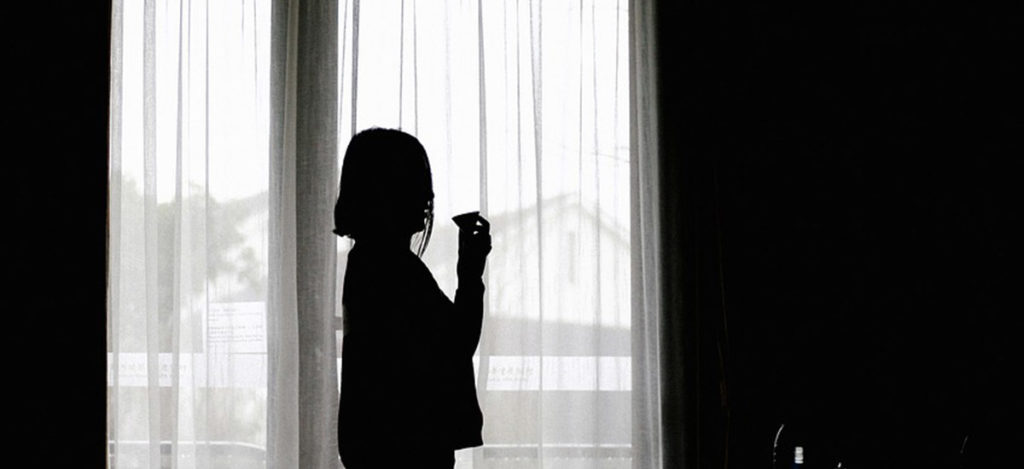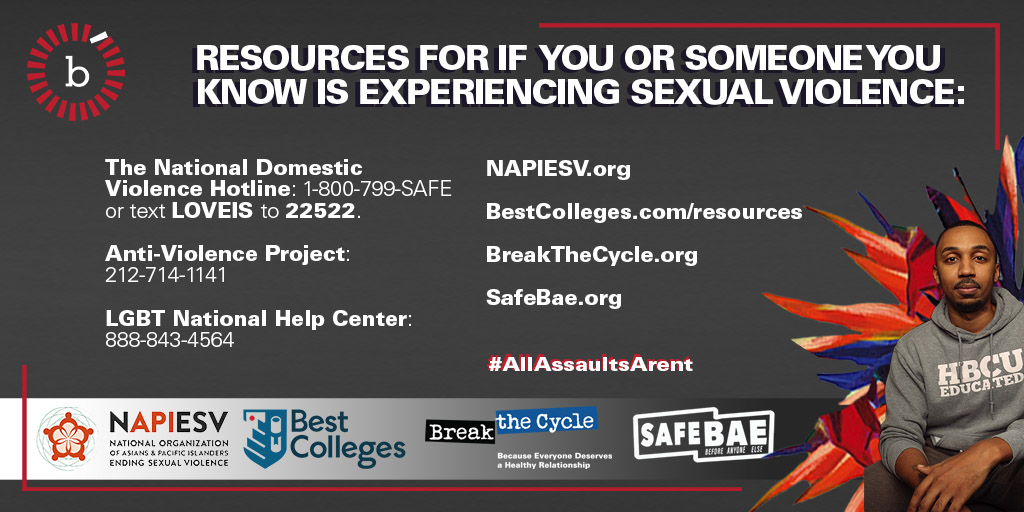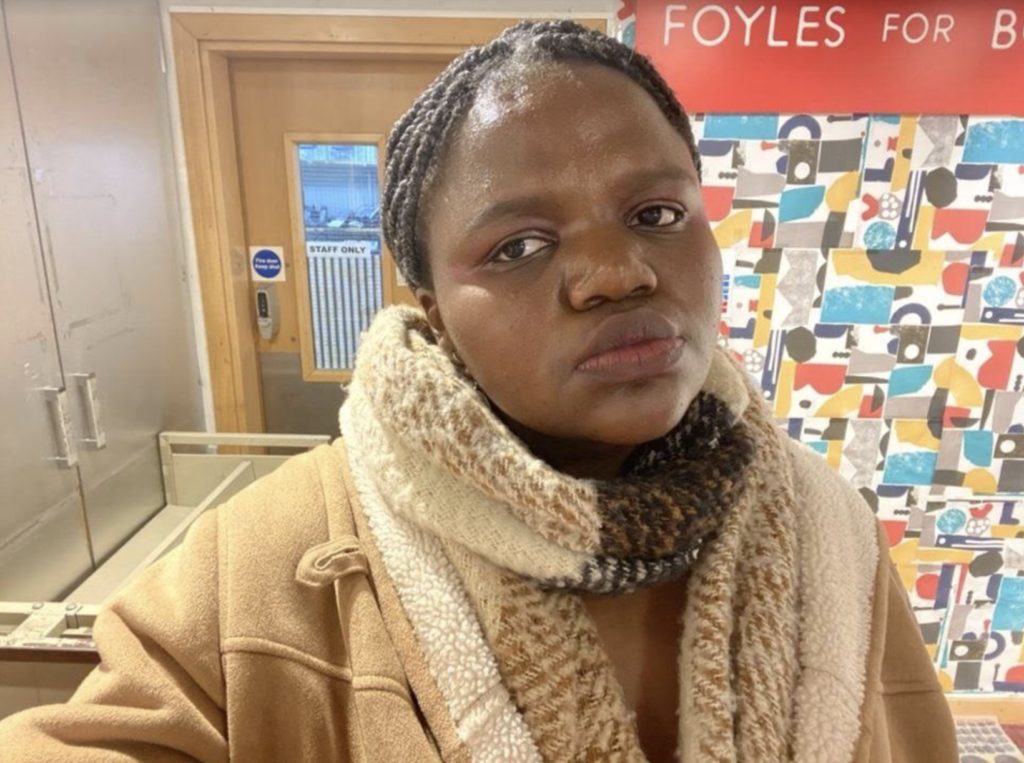
State institutions have never protected survivors. COVID-19 makes it clear community care is needed instead
*This piece is published in partnership with Black Youth Project as part of By & For: Black Youth, a written series documenting the issues affecting Black girls and gender non-conforming youth.
By Gloria Oladipo
TW: Sexual Violence
COVID-19 has created a crisis for nearly everyone across the world, particularly in communities of color. Within this mass chaos, those who are most vunerable to sexual violence have been ignored by government officials. Despite data that shows mandated social distancing leading to higher rates of domestic violence, survivors of color are being neglected in COVID preparation plans. Moreover, resources assigned for people facing sexual violence are in short supply due to COVID placing restrictions on hospitals and community centers.
During a time when survivors of color need these resources most, state institutions continue to tragically fail us.
Sexual violence is an everpresent reality for womxn of color, particularly Black womxn. In the United States, while 80% of assaults are reported by white womxn, womxn of color face violence at higher rates. For queer and trans womxn of color, these rates prove even higher.
However, resources are rarely curated to our specific experiences. Trauma therapists of color are not in high supply, specifically those covered by insurance. Hospitals, which can be the first stopping point for survivors, can be a triggering place for Black survivors due to medical racism. The police can put survivors of color in danger and do a poor job of addressing sexual violence—even committing sex crimes themselves. When most resources are stretched for funding or ignorant to the needs of survivors of color, vulnerable people are left without places to go.
The current cultural climate can be extremely triggering, adding an additional challenge for survivors. Besides the inability of our society to reckon with sexual violence, survivors now have our friends and family rallying us to vote for alleged rapists like Joe Biden.
Celebrities and others who were previously vocal about their allyship with survivors are quietly falling in line to endorse an abuser. We continue to see people on our social media feeds debate about why having another rapist for a president would be so bad since we already have one in office. All the while, survivors like Biden’s accuser Tara Reade are forgotten, reminding us that no one cares when we are suffering in silence.
I’m not surprised to see these people or systems fail. At my school, Cornell University, a local Ithaca resident was recently posing as a student, using his fake status to get into campus parties and social events. There, he would target Black women, lying about his identity and sexually violating people, and it could hardly have been easier for him to get away with it.
Despite being a repeat abuser, predator, and rapist, the legal system had never held him accountable for all he had done. We hung out and texted back and forth for two weeks until I heard about the years of harm he had committed. “Shocked” is an understatement for how I felt; “shocked” doesn’t cover the shame, disgust, hurt, anger, and trigger that consumed me.
At first, I kept our time together a secret because I was disturbed how someone like that could be in my life, even though I didn’t know all that he was guilty of. When I found out that he was still preying on underclassmen, I spread the word about his crimes. I posted his face across social media, reported him to the university, and even went to the police. While some members of the community made strides in holding him accountable, the university and police failed me (typical). They imparted a non-effective ban on him, one that they didn’t even communicate to the student body.
I and other survivors felt rejected and let down by the same structures pretending to protect us. Sure, institutions could voice support for us and our success, but as soon as action was needed, there was no one from these institutions in our corner. The people who really showed up for me were other Black womxn, people who knew my struggle and didn’t want to see me walk alone.
The apathy I received from my university and the police destroyed what little confidence I had in these resources. Just as police have failed to protect survivors during COVID-19, my experience only provided another example on how the places survivors are “supposed” to turn to continually fail us.
Because of this, for survivors of sexual violence, mandated isolation can be an even more dangerous and trying time. Whether being trapped with an abuser or not having regular access to resources, survivors are more vulnerable than ever.
Therefore, we need people and services that will show up for us. Individuals and communities that know and support us can help call out active violence and gain an intimate understanding of our needs. We need those around us who will condemn sexual violence always, who won’t minimize our trauma to win an argument. We need our services—medical, mental, and otherwise—restored despite the pandemic. The many advocacy centers working to create safe spaces for survivors and conducting services from home demonstrate what is possible.
Even in the chaos and confusion of COVID-19, survivors of sexual violence need community support. Our ongoing pain and trauma shouldn’t take a backseat, now or ever.


Gloria Oladipo is a 20 year old Black woman and a 3rd year Cornell student. She is a freelance writer with pieces at Teen Vogue, Healthline, Black Youth Project, Rewire Magazine, and more. Moreover, she is also a regular contributor at Wear Your Voice magazine. She enjoys writing about all things race, gender, politics, mental health, pop culture, and more. In her free time, she enjoys reading, gardening, and working on her non-freelance based creative projects. You can learn more about her on her Instagram (@glorels) or her Twitter (@gaoladipo).
